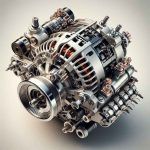The primary function of oil filters is to keep the oil that lubricates and protects the internal parts of the engine clean. As the oil circulates, it traps dirt particles and debris that could damage the engine’s delicate components. Without efficient filters, these impurities could accumulate, reducing engine efficiency and increasing the risk of costly breakdowns.
Imagine oil filters as silent but vital guardians of your engine’s health. By changing them regularly, you not only ensure that the oil circulates clean and contaminant-free, but you also optimize fuel efficiency and reduce harmful emissions to the environment.
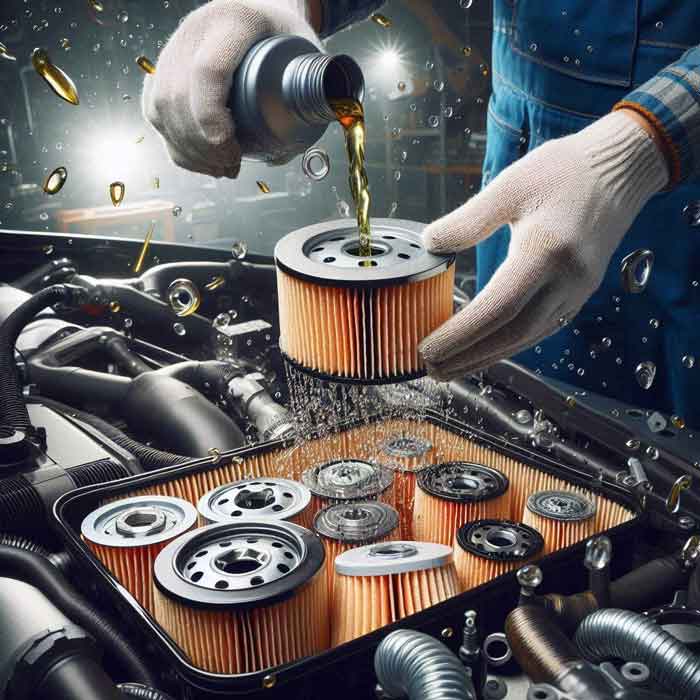
However, knowing when to change the filters is not just a matter of time but also of usage and driving conditions. For example, those who drive in dusty environments or frequently take short trips may require more frequent changes to maintain optimal engine protection.
Publication contents:
What is the ideal frequency for changing oil filters?
Optimizing engine performance directly depends on the proper maintenance of oil filters. Personally, I have found that following a regular filter change schedule not only improves performance but also avoids costly long-term repairs. Finding the right balance between convenience and automotive maintenance efficiency is essential.
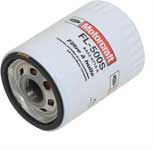
Motorcraft FL-500S Original Version Oil Filter
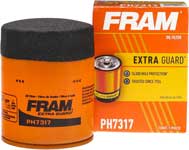
FRAM Extra Guard PH7317, 10K Mile Change Automotive Replacement Interval Spin-On Engine Oil Filter for Select Vehicle Models
The ideal frequency for changing oil filters varies depending on several factors, such as driving style and road conditions. Using high-quality filters can extend change intervals and improve engine protection. It is an investment worth making for any driver who wants to keep their vehicle in optimal condition.
In my experience, following the manufacturer’s recommendations and scheduling regular changes is key to avoiding long-term mechanical issues. This ensures that the engine operates efficiently and extends its lifespan. Additionally, having a trusted workshop that uses quality products guarantees optimal results and peace of mind while driving.
What Happens if You Don’t Change Oil Filters Regularly?
Changing oil filters regularly is crucial to keeping your vehicle’s engine in optimal condition. Oil filters play a fundamental role in removing unwanted particles and keeping the oil clean, which is vital for engine performance and longevity. If you don’t perform this maintenance periodically, several problems can arise.
When you don’t change oil filters as recommended, the oil starts to accumulate dirt and debris. This can decrease the oil’s lubrication capacity, leading to increased wear on the engine’s internal parts. Over time, this can result in serious damage and costly repairs.
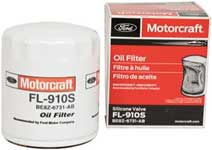
Motorcraft – Oil Filter (FL910S)
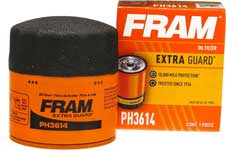
FRAM Extra Guard PH3614, 10K Mile Change Interval Spin-On Oil Filter
Additionally, clogged or saturated oil filters can’t effectively filter impurities from the new oil added during each change. This means abrasive particles could circulate freely, causing additional damage to key components like bearings and cylinders.
Failing to change oil filters regularly can also negatively affect fuel efficiency. A clogged filter can make the engine work harder to pump clean oil, leading to increased fuel consumption. This not only impacts your wallet in the long run but also has a negative environmental impact due to higher exhaust emissions.
Beyond mechanical consequences, ignoring oil filter changes can void your vehicle’s manufacturer’s warranty. Many warranties require evidence of regular maintenance, including filter changes according to recommended specifications. If an engine failure occurs and you can’t prove proper maintenance, you could face repair costs that could have been avoided.
What Are the Signs That an Oil Filter Needs to Be Changed?
One of the most evident indicators that the oil filter needs replacement is the presence of dirty or contaminated oil. You can notice this by checking the oil on the dipstick; if it has a dark color or contains visible particles, the filter likely no longer filters efficiently.
Besides the visual aspect of the oil, pay attention to any unusual noise coming from the engine. A clogged oil filter can cause insufficient lubrication, resulting in metallic noises or knocking when starting or accelerating the vehicle. These are clear indications that it’s time to check and possibly change the oil filter.
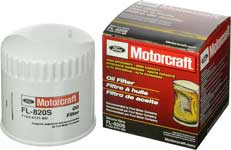
Motorcraft FL-820-S Oil Filter
Another common sign of a deteriorated oil filter is a decrease in engine performance. If you notice your vehicle losing power or having difficulty responding to the accelerator, the oil filter might be limiting the proper flow of clean oil to critical engine parts. This can affect both performance and fuel efficiency.
Remember that although many drivers follow a regular oil change schedule, the oil filter also needs periodic attention. Even if you change the oil regularly, a clogged filter can compromise the lubrication system’s effectiveness.
To keep your vehicle in optimal condition, consider changing the oil filter according to the manufacturer’s recommendations or if you experience any of these warning signs. Not only will you protect the engine, but you’ll also improve efficiency and extend the vehicle’s lifespan.
How Does Oil Filter Quality Affect Engine Performance?
Oil filter quality directly affects your vehicle’s engine performance. Oil filters play a crucial role in protecting the engine by removing impurities and debris that can damage internal parts. If the oil filter is low quality, it won’t perform its function effectively, allowing harmful particles to circulate through the engine.
A good oil filter ensures that the lubricant remains clean, improving engine efficiency and extending its lifespan. I have found that using high-quality filters makes the engine run smoother and more efficiently. These filters are designed to retain the smallest particles, ensuring that only clean oil reaches the engine’s critical parts.
Additionally, a high-quality oil filter can prevent serious problems, such as premature wear of engine components and power loss. For example, cheap filters often clog quickly, which can reduce oil pressure and eventually cause costly engine damage.
Have you ever wondered why your car’s engine performance isn’t the same after an oil change with an inexpensive filter? The answer is simple: oil filter quality. A poor-quality filter cannot adequately filter impurities, causing contaminated oil to circulate. This not only reduces engine performance but also increases the risk of breakdowns.
In my experience, investing in a good oil filter not only improves engine performance but also provides peace of mind. Knowing that the engine is protected against contaminants and running optimally is invaluable. Additionally, keeping the engine in good condition can save you money on repairs and maintenance in the long run.
For those looking to maximize engine efficiency and lifespan, I recommend choosing oil filters from recognized and reliable brands. Don’t skimp on something as vital as your engine’s health. Remember, a good oil filter is a smart investment for your vehicle’s performance and durability.






